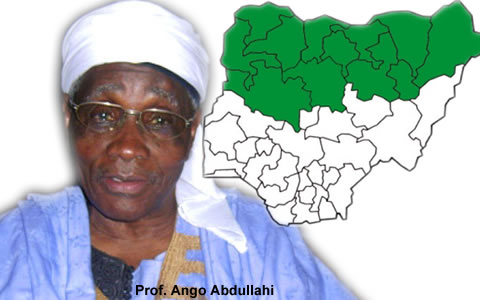The Northern Elders Forum (NEF) have proposed the setting up of a dialogue and reconciliation commission by the Federal Government which would have full powers to negotiate and reconcile with the Boko Haram insurgents with a view to ending the current violence in the north.
The elders’ advice comes after the top leadership of the Islamist sect rejected the amnesty offer being proposed by the Federal Government.
In a statement issued after its well-attended meeting in Abuja yesterday, the NEF surmised that the Boko Haram members had found the word “amnesty” offensive as the government’s choice of diction to describe the peace overtures made to the sect.
Consequently, they suggested that the word be dropped and replaced with “The Reconciliation Concept”, if the government really wants to the end the insurgency ravaging the north.
The NEF stressed that “the recommendation of the use of the term “Reconciliation” in place of “amnesty” is informed by the fact that it is more politically neutral and translates more into “Sulhu”, an Arabic/Hausa word that suggests full negotiation over grievances and a just and fair settlement.
“It is likely to be more acceptable to the insurgents for the purposes of encouraging participation and relieve government of the liabilities of the previous amnesty programme”, said the spokesman of the forum, Prof Ango Abdullahi.
He added, “The Reconciliation Concept should be operated in such a manner that it does not imply forgiveness for crimes of any type.
“It should suggest total and unconditional acceptance of insurgents and government agents currently involved in the conflict as sides with legitimate reasons and claims.
“It should therefore be treated as a first step towards full resolution of the conflict”.
“Under the Reconciliation Concept, insurgents who give up insurgency and arms will not be further investigated, prosecuted, persecuted or in any way suffer disadvantages now or in the future”.
The commission is the cornerstone of a nine-month action plan being proposed by the Forum to stem the orgy of violence in the North.
In the first month of implementing the Reconciliation Concept, the Forum recommended that government should publicise the programme and “set up the Reconciliation Commission”, with the president spelling out the full details of the programme’s provisions, “including the composition and powers of the Commission”.
The NEF also recommended that “no government employee or security personnel in any form should be a member” of the commission, which should also have “powers to have first-line contacts with the insurgents who wish to be processed through the programme, and should be responsible for the security and welfare of the insurgents for the duration of the programme”.
In the same timeline, the commission will set up Religious/Aqida Group, which will “engage the insurgents on doctrinal issues and related matters”; the Programme and Dialogue Advocacy Group that will be charged with encouraging “insurgents to submit to the programme” and advise the commission and government on confidence-building measures”; and the Reconciliation Programme Security Group, which “will be responsible for the security of the process/programme”.
Between the second and fifth months of the proposal, the programme will see to the “commencement of dialogue with the insurgency; release of suspects who have no cases against them, women and underage detainees; relaxation of detention regime; prosecution of those people accused of killing Yusuf Muhammed (the slain Boko Haram leader); visible scaling down of JTF activities; and implementation of economic initiatives in affected communities”, among others.
In the fifth to ninth month of the NEF’s action plan, “full dialogue and negotiation, and conclusion of disarmament and demilitarisation of all (conflict) areas” will be pursed alongside addressing “other security threats which either ape Boko Haram or involve inter-communal strife” and “unveiling a three-year Economic and Social Reconstruction Blueprint” to succeed the programme.
The NEF stressed: “At the expiration of the lifespan of the programme, all activities by the insurgency will be criminalised, and the state will treat them in the manner designed to protect lives and properties of citizens, and the security of the nation.”
The northern elders urged “both the government and the insurgents to remain flexible to new ideas and suggestions by people of goodwill from within and even outside the country who are making genuine efforts to achieve peace in the nation”.
The meeting was attended by 41 members of the elders’ body, including the convener Alhaji Yusuf Maitama Sule, former chief justice of Nigeria (CJN) Justice Muhammaed Lawal Uwais, former attorney-general of the federation and minister of justice Chief Michael Aondoaka, one-time chief justice of Nigeria Justice Dahiru Mustapha, former secretary to the government of the federation (SGF) Alhaji Gidado Idris, former chief of army staff Lt-Gen. Salihu Ibrahim, former inspector-general of the police Alhaji Ibrahim Attah, Air Marshal Alamin Daggash (rtd), former chief of army staff Gen. Ishaya Bamayi and one-time director of the State Security Service (SSS) Alhaji Sada Ilu, retired deputy inspector-general of police Uba B. Ringim, Gen. Ahmad Abdullahi, among others.. Six other members sent their apologies for their unavoidable absence.




 Premier League
Premier League